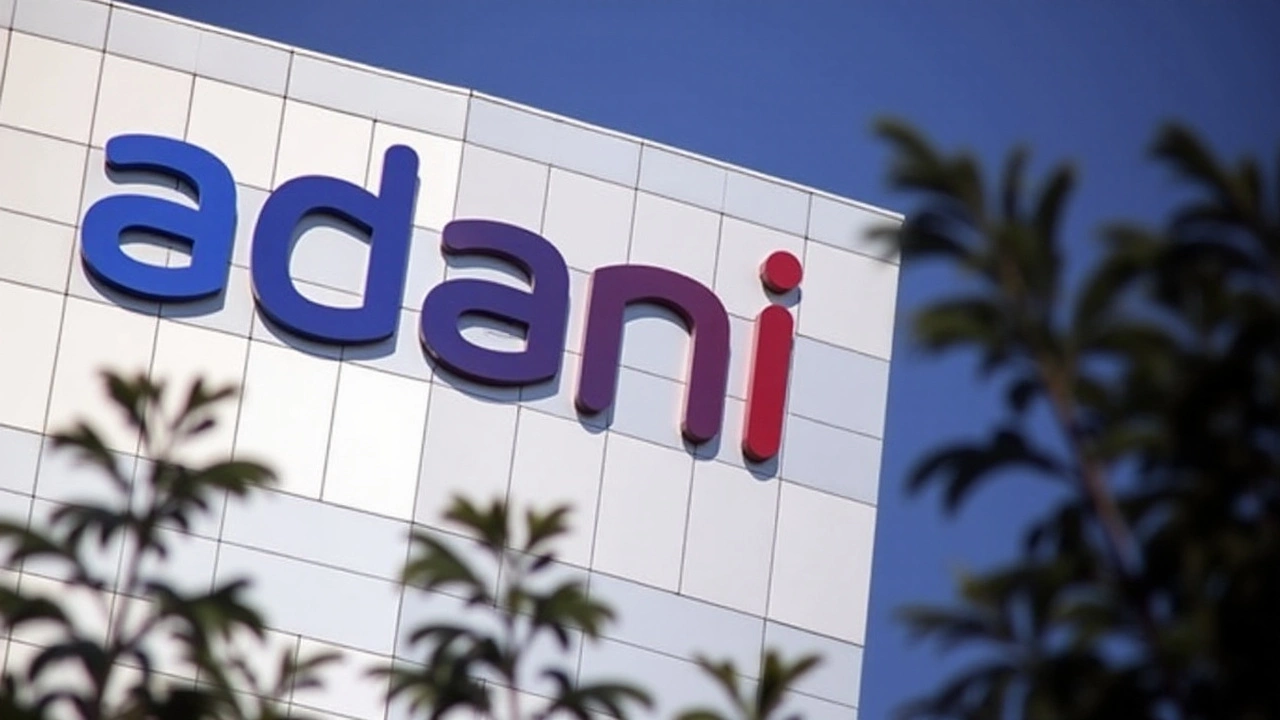Adani Group's Troubled Waters: Bribery Allegations Surface
The Adani Group, one of India's largest conglomerates, is weathering a significant storm. Billionaire Gautam Adani and several key figures within his empire have been accused by the U.S. Department of Justice and the Securities and Exchange Commission (SEC) of forming a complex bribery scheme aimed at winning lucrative solar energy contracts back home. These allegations have caused the group to abruptly pull out of a substantial $600 million bond issuance, an effort integral to funding their ambitious green energy projects.
The charges brought against Adani and his executives include securities fraud, securities fraud conspiracy, and wire fraud conspiracy. According to the allegations, between 2020 and 2024, more than $250 million in bribes allegedly exchanged hands with Indian government officials to secure contracts, promising profits potentially exceeding $2 billion. This revelation has sent shockwaves across the financial markets and has challenged the credibility of one of India's most powerful business enterprises.
Financial Fallout and Bond Deal Scrutiny
Initially, the Adani Group, through its green energy arm Adani Green Energy Ltd., had strategically decided to float a bond with an attractive yield of approximately 7.45-7.5%. This bond issuance was poised to help align Adani's financial liabilities with the long-term power purchase agreements (PPAs) tied to its solar and wind assets. However, the U.S. charges served as a major deterrent, causing the company to withdraw its bond offer prematurely.
This withdrawal marks a repeated instance for the Adani Group, following an earlier decision to pause a similar bond issuance. The previous postponement was driven by unfavorable interest rates and market conditions preceding the U.S. elections, indicating a pattern of volatility and strategic recalibration in the group's fundraising endeavors. These actions underline the burden of legal and regulatory crosshairs on Adani's corporate strategies.

The Legal and Regulatory Contours
The legal actions against Adani have come as a shock to many in the business world, highlighting the potency of international regulatory bodies in scrutinizing cross-border financial dealings. Gautam Adani, alongside his nephew Sagar R. Adani and former CEO Vneet Jaain, has found himself at the epicenter of a civil case led by the SEC. The allegations paint a damning picture where the Adani Group purportedly misled U.S. investors about their internal anti-bribery protocols while actively engaging in the multi-million-dollar payoff scandal.
Following this lawsuit, Adani’s corporate cognition and public acknowledgment came in the form of an official filing with the Bombay Stock Exchange (BSE). Here, it was confirmed that the decision to suspend the bond offer was directly linked to the unfolding legal challenges stateside. This move emphasized the potential far-reaching implications on Adani’s pathway to secure global capital funding, a vital element for their expansive clean energy ambitions.
The Wider Impacts and Future Outlook
The legal entanglements facing the Adani Group extend beyond just charges. They pose a looming threat to its broader operational dynamics and its planned uptick in renewable energy investments. Given the scale of the accusations, the access to crucial global capital markets is now imperiled. This is concerning for a group that has long relied on international avenues to leverage capital for massive infrastructure projects.
The bond deal, now scratched, was initially structured to provide flexibility in managing financial resources, releasing funds from a substantial $3.4 billion revolving credit facility. The ease in financial pressure could have facilitated new project financing, ensuring the group's seamless push towards enhancing India’s renewable energy portfolio. However, with the latest developments, the stakes have significantly escalated, leaving questions regarding the group's future strategic pivot in the air.
The developments surrounding Adani's legal saga are bound to capture global attention, sparking discussions on corporate ethics and governance. It also casts a spotlight on the intricate balance between aggressive market expansion and ethical practices, both of which play a crucial role in sustaining a conglomerate's reputation and market position.

Implications for the Indian Energy Market
At the heart of this issue lies a broader impact on India's growing energy needs, especially its relentless pursuit of renewable resources. Adani Group, a key player, has been instrumental in powering India’s transition to cleaner energy sources, underscoring the scale of disruption these allegations potentially carry for the national energy market. The need for credible players in this sector is critical; thus, the unfolding of this case may influence stakeholder trust and investment patterns.
As the legal proceedings unfold in the United States, there is an anticipation that it may indirectly influence policy reforms and compliance measures within India. It may trigger a recalibration of ethics within the corporate boardrooms, potentially heralding a new chapter where transparency and integrity are prioritized.



